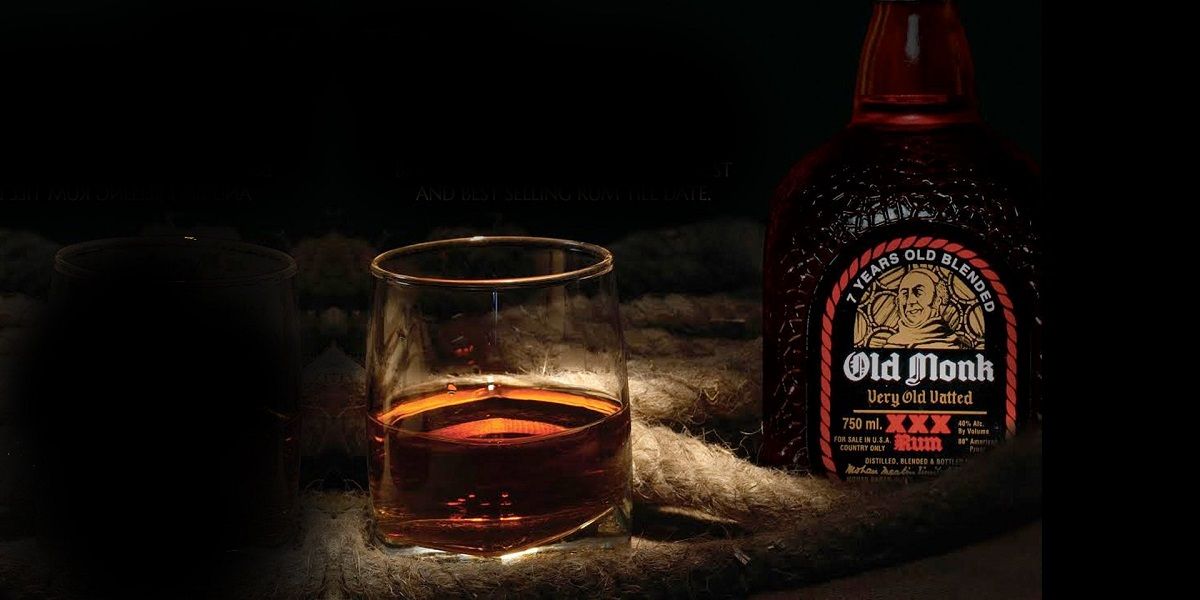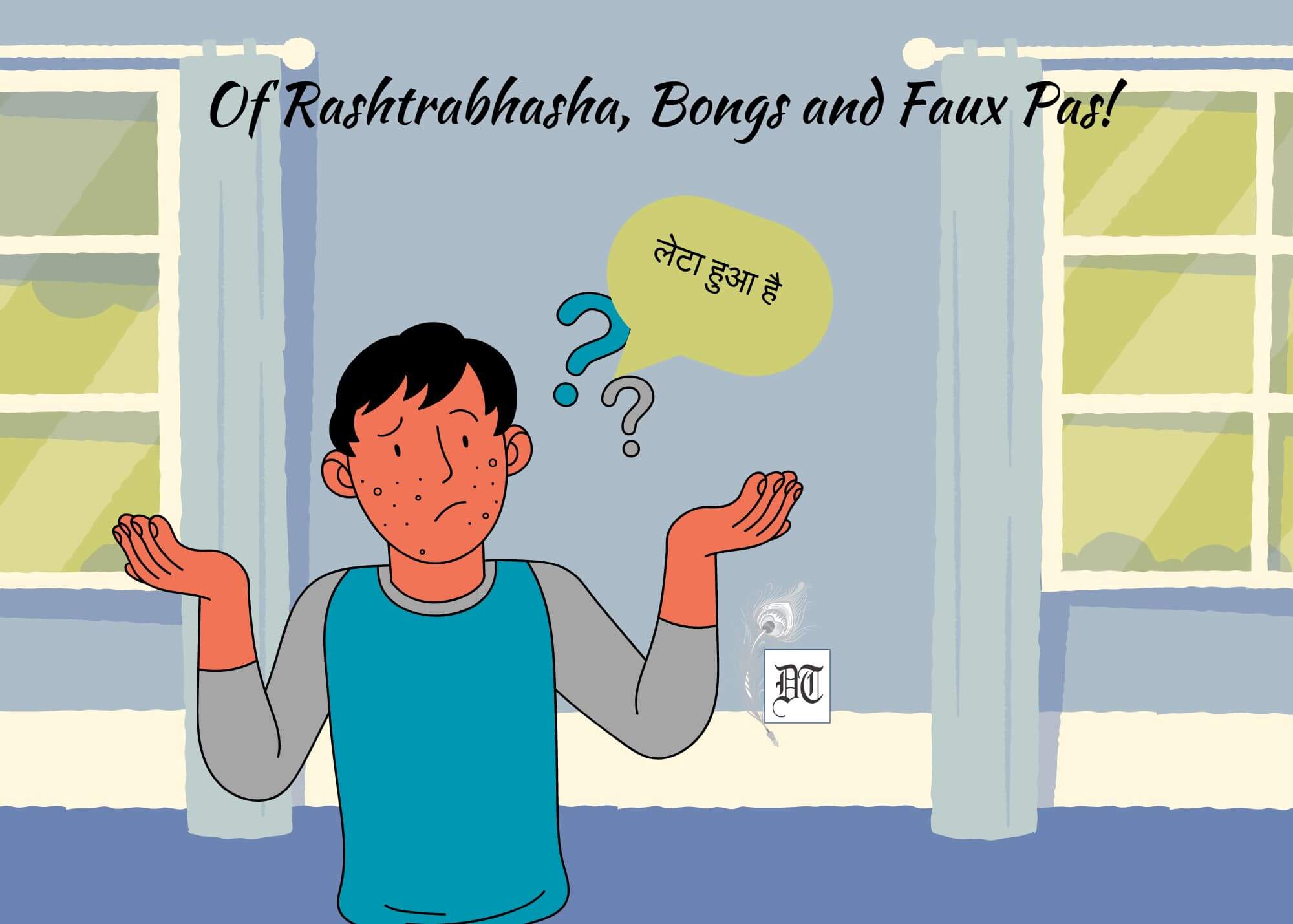Soumya recounts an incident about two childhood friends, doing well in life, who decided to meet in a plebeian bar to booze. What happens when booze flows? A Different Truths exclusive.

This story was narrated to me over drinks by a friend, as such stories are often told, in a dimly lit bar, where tall stories were being swapped. He was drinking a malt whisky called Kuch Nahin, a very light coloured concoction, and our conversation about it led to many discussions on drinks and drinking, a popular topic in a bar, but this particular story stayed in my mind.
For the sake of sounding authentic, I will retell this in first person.
The Kuch Nahin’s tale
I was meeting an old friend after a gap of few years in Mumbai. We were friends since school and had stayed in touch but met once every few years as we both went in our respective ways in search of a career. Currently, I was running my own business with reasonable success in Mumbai and my friend was a top Executive in a Public Sector Company. He was travelling to Mumbai, where I was located, and we decided as usual to catch up for a drink. He was staying at the Taj but wanted to try out one of the seedy watering holes just like our old impecunious times.
I took him to Gokul’s with the additional incentive of Bade Miyan next door, but he wanted something even more plebian. So, I took him to Grant Road where in one of the by lanes there was an establishment run by an elderly Sikh gentleman. The ground floor was open to the road and the upper floor was air conditioned. You get mongdil, the small tasty fish not available in the swankier establishments. Here boiled peanuts and roasted gram are available for free and one can smoke ignoring the no smoking signs. Also, drinks could be ordered by the peg, quarter, half or full bottle. The working-class areas of Mumbai are dotted with such joints. This received my friend’s approval as it brought back nostalgic memories of our college days.
We decided to order our favourite tipple from those days, Old Monk Rum. The waiter asked whether we wanted it by pegs, quarters or a bottle. We decided to order a quarter as in the old days. The waiter suggested that a half or a bottle would come cheaper, but my friend insisted that only a quarter be brought as we are not drunkards.
“Hum Bewda hai kya? Quarter lao.” (Are we drunkards? Get a quarter)
The waiter obliged and I asked my friend whether I should split it in 2, 3 or 4 pegs. 4 pegs of course – my friend responded. We are not drunkards. ‘Bewda hai kya?’
Reminiscing over old times, we soon finished the quarter and the waiter brought a replacement on request, which too was soon over.

Sensing our mood, the waiter brought the third quarter without being asked and we made quick work of that too.
Now, in an expansive mood, my friend asked the waiter for a third quarter. Confused waiter tried to explain that we had already consumed the third and this will be the fourth. My friend retorted, “Did I ask you for it?”
The poor waiter was trying to explain that we had already finished it when my friend reassured him that he did not say that we would not pay for it, and he is not to worry, but he should remember that we are not drunkards and never drink beyond three quarters and would never ask for a fourth. “Bewda hai kya?” So, the quarter he will now serve on being asked is the third quarter. However, we will pay whatever is being billed.
The owner was keenly following this exchange and now came over to our table. After a few pleasantries being exchanged, he questioned us and established that we were childhood friends and meeting after a while. He then wanted to know where we stayed and how we are to go back.
My friend, to the owner’s surprise, informed him that he was staying at the Taj and the swanky car outside with Government of India written in front was his and it was chauffer driven. I too admitted that I have come all the way from Hiranandani at Powai, and I had a more modest car parked further away but I too had a driver. The owner then said that he realise that we appreciated drinks and old friendships and that we were not drunkards, but he merely wanted to ensure that we could get back safely. He said that he felt privileged to serve connoisseurs of rum like us and this quarter would be on the house and quarters would keep coming as long as we wanted with the third quarter being the last, we ordered because “Aap bewda nahin hain, shaukeen hain” (you are not drunkards, you are connoisseurs), he declared.
©Soumya Mukherjee
Photos from the Internet
#Humour #Drunker’sTale #ChildhoodFriend #Mumbai #DifferentTruths





 By
By

 By
By
Hilarious Sir! Cheers!
Hello Sir/Mam!
I need post on your site ; differenttruths.com
Let Me know post price with Do-Follow link.
I am waiting for reply.
Best Regards
Dear Ella,
Could you please elaborate what you need exactly? By the way, we have a section called Guest Blogger that allows you to post your blog on our site and give a link of your blog. This is a paid feature. If interested please get back to us. Will inform the token fee for each post.
Best Wishes,
Arindam Roy
Editor-in-Chief
I love the story and bet the Top Executive is you Soumya Sir. You wouldn’t believe as you started the narration, my mind verged to Gokul in Mumbai and exactly it got a mention. Drinking at shady bars is such a bliss and yes aap bhewda toh nahin hai